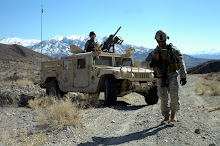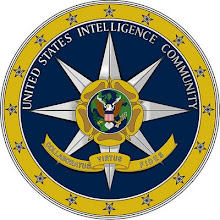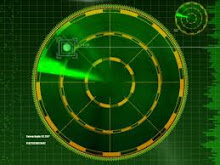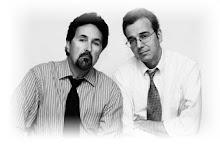By Steve Hammons
Amid recent news reports and TV shows about UFOs whizzing around U.S. Navy jets and aircraft carrier battle groups off the U.S. west and east coasts, a former national security analyst warns us to be cautious and thoughtful.
Acquiring highly-advanced UFO knowledge and technology could be very helpful for humanity – or dangerous, he wrote.
In an article published on The Hill website Oct. 13, opinion contributor Marik von Rennenkampff explored the U.S. government’s interests in “unidentified aerial phenomena (UAP).” Under the headline “3 reasons to investigate the US Navy UFO incidents,” von Rennenkampff suggests we look within.
If humans were to acquire such knowledge, “Given the anti-democratic and authoritarian inclinations of some major world powers, it is imperative that such capabilities fall into the ‘right’ (i.e., democratic) hands,” von Rennenkampff wrote.
Certain advanced knowledge and technology should also affect our perspectives, he says. “In the event that such capability exists, mere knowledge thereof should prompt a fundamental shift away from humanity’s baser priorities in favor of loftier, nobler objectives.”
URGENT DEVELOPMENTS
The article notes that von Rennenkampff was formerly an analyst with the U.S. Department of State’s Bureau of International Security and Nonproliferation, and with the U.S. Department of Defense.
The Navy cases von Rennenkampff references have been in the news and on TV over the past couple of years. One was a 2004 series of incidents off the San Diego and Mexican coast involving an aircraft carrier battle group. The other also involved a carrier battle group off the U.S. east coast in 2014 and 2015.
Multiple unusual objects were observed by Navy pilots, sometimes in close proximity, recorded by multiple sensors on Navy jets and tracked by shipboard radar. The UAP appeared to pose potential dangers to Navy pilots from collision and demonstrated very unusual aerospace performance, according to Navy witnesses.
What are these UAP? What does it mean? This seems unclear to many people.
There are plenty of experts as well as Hollywood movies warning us about the dangers of potential adversaries from “somewhere else.” Yet, von Rennenkampff also suggests we take a look at human nature too – not always a pretty picture.
Can government officials and other leaders in the U.S. and around the world handle the potential power of advanced knowledge and technology? Can average Americans and people internationally adjust in healthy ways to significant and surprising discoveries?
How much do we need to be concerned about the situation at hand regarding UAP? And how does that phenomena relate to our already-problematic international relations, including urgent military and humanitarian developments in multiple places on Earth.
HIGH-PRIORITY INVESTIGATION WARRANTED
To help readers get up to speed on these Navy reports, von Rennenkampff addresses some of the immediate and obvious issues involved. He writes, “This raises the possibility that these pilots witnessed technology well beyond the grasp or bounds of science.”
And von Rennenkampff noted, “If these accounts are accurate – and sophisticated sensor data indicate that they may be – the capabilities exhibited by these objects represent an astonishing leap forward from the technological status quo. As such, a compelling case can be made to invest in fully investigating these phenomena.”
“First, the national security implications of getting to the bottom of these incidents are beyond obvious,” he wrote.
“In addition to posing a serious collision risk, determining the nature of the objects – whether benign, easily-explainable phenomena or potentially threatening – is of critical importance. Indeed, by some accounts, such incidents are occurring with increased frequency.”
In some of his closing comments, von Rennenkampff again looks at human motivations and human behavior. “Perhaps most importantly, as one of the Navy fighter pilots who reported a close encounter notes, mankind is driven by curiosity. Throughout history the human inclination to explore the unknown has precipitated monumental advances in a short span of time.”
Yes, humankind has been driven by curiosity – as well as by a number of less-admirable motives such as greed, power and conquest, to name a few.
But von Rennenkampff seems to feel we are up to the challenge, or at least to giving it our best efforts. On this UAP or UFO phenomena, he advises that, “a well-funded and efficiently managed public investigation is not only warranted, it should be prioritized.”
(Related articles “Storytelling affects human biology, beliefs, behavior” and “Reagan’s 1987 UN speech on ‘alien threat’ resonates now” are posted on the CultureReady blog, Defense Language and National Security Education Office, Office of the Undersecretary of Defense for Personnel and Readiness, U.S. Department of Defense.)
skip to main |
skip to sidebar

In the past 30 days, readers from approximately 40 countries or territories using about 20 languages visited the Joint Recon Study Group site.

To see more articles, scroll down the right-side column.

Steve Hammons

Articles from the Joint Recon Study Group site and Transcendent TV & Media site are included.
The Joint Reconnaissance Study Group is the San Diego-based, combined-service/agency, research-and-activities team in my novels "Mission Into Light" and sequel "Light's Hand." This site contains information of interest to the JRSG.
Home page: Joint Recon Study Group site
Readers from around the world visit this site.

In the past 30 days, readers from approximately 40 countries or territories using about 20 languages visited the Joint Recon Study Group site.
April 2021 threat alert: ‘Force protection’ for our troops now the responsibility of all Americans
First responders must deal with society’s problems, shortcomings, injustices every day
Could some UFOs be linked to Native American 'white stone canoe' legends, stories?
Wildland firefighter basic training available at community colleges, tech schools, training centers
‘Boomer remover’ coronavirus is bigger threat to WWII generation that saved the world
‘Black swan’ events that aren’t: Coronavirus, climate emergency, unidentified aerial phenonema
Reagan’s complete 1987 UN message on ‘alien threat’ overlooked: Grave danger here, now
Was Reagan briefed about UFOs and original ‘Day the Earth Stood Still’ movie?
My military draft lottery number was #165 during final Vietnam War years
“Keep On The Sunny Side,” by The Whites, from movie O Brother, Where Art Thou?”
Living along Ohio River for centuries, Native Shawnee called it ‘Kiskepila Sepe’ – ‘Eagle River’
Native American words around us: States, towns, rivers, lakes, terrain, plants, animals, military
Athens County, Ohio, was key spot when colonists, Redcoats fought Shawnee in 1774 battle
1787 Northwest Ordinance set course for Ohio, Indiana, Illinois, Michigan, Wisconsin, Minnesota
Smallpox-tainted blankets were 1763 bioweapon on northern Appalachian Mountains frontier
Diana Krall performs “Maybe You’ll Be There" live in Paris with Paris Symphony Orchestra 2001.
Books to read in 2021? Novels "Mission Into Light" and the sequel "Light's Hand"
Novel excerpt: Renew, prepare America with ‘Urgent Response Group’ for teens, young adults
Diana Krall performs “I Get Along” live in Paris with Paris Symphony Orchestra 2001.
Steve Tyrell sings “Give Me the Simple Life.”
Diana Krall performs “Love Letters” live in Paris with Paris Symphony Orchestra 2001.
Visit the article archives!

To see more articles, scroll down the right-side column.
Novel "Mission Into Light" overview on Amazon
Novel "Light's Hand" overview on Amazon
Adventures of the Joint Recon Study Group: Overview and synopses of activities and operations
Key chapter overviews: Points of interest in the novel "Mission Into Light"
Key chapter overviews: Points of interest in the novel "Light's Hand"
Multimedia rights available
English and foreign-language book rights, audio book and e-book rights for "Mission Into Light" and "Light's Hand" are available. Movie and TV rights are available.
I'm seeking agent representation for these works and rights.
Please contact Steve Hammons for more information at hammons55@gmail.com.
Feature film screenplay
I completed a feature film screenplay in 2006 based on “Mission Into Light” and “Light’s Hand” combining key elements of both novels.
The screenplay takes audiences into the adventures and discoveries of the Joint Recon Study Group and the relationships among team members, friends and associates as they explore leading-edge research and emerging transcendent developments.
I'm seeking agent representation for this screenplay.
.........................
I also wrote a TV series pilot script based on "Mission Into Light" and "Light's Hand" story. I'm seeking agent representation this script.
About the Author

Steve Hammons
About the Author
I was born and raised in southwestern Ohio near the Kentucky and Indiana borders, then went to college at Ohio University in the southeastern Appalachian region of the state near West Virginia.
I graduated with a dual major in communication (journalism focus) and health education (psychology focus) with a minor in pre-law.
Ohio U. is home to the respected Scripps College of Communication and E.W. Scripps School of Journalism.
I also completed two graduate-level courses in guidance counseling theory and method at Ohio U.'s College of Education, School of Applied Behavioral Sciences and Educational Leadership.
At the end of my undergraduate education at Ohio University, I moved to the beautiful American Southwest where I applied my education, continual training and and ongoing experience to related professional fields such as health care, journalism and special research areas.
My novels "Mission Into Light" and the sequel "Light’s Hand" are available in e-book and 6"x9" paperback from most online booksellers worldwide.
Readers review metaphysical-military-intelligence adventure novel ‘Mission Into Light’
My articles on DoD CultureReady blog, Defense Language and National Security Education Office
Transcendent TV & Media site
Past articles: Scroll down the right-side column for more articles.

Articles from the Joint Recon Study Group site and Transcendent TV & Media site are included.































































































































































































